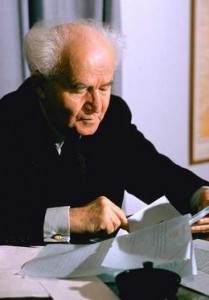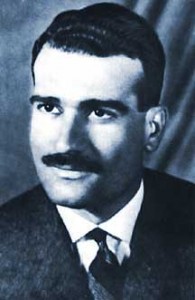Evet Lvovich Lieberman (b. 1958) was born in Moldova to a Russian-Jewish family. He grew up speaking Yiddish and dreamed of being a poet. In 1978, his family made aliyah to Israel, where he went by the name “Avigdor”. After serving in the IDF, Lieberman studied political science at the Hebrew University. During this time, he worked as a bouncer in a club, and went on to become the club’s manager. In the mid-80s, Lieberman co-founded the Zionist Forum for Soviet Jewry, and worked for Israel’s National Worker’s Union. His first real foray into politics was in 1988, when he began collaborating with Benjamin Netanyahu. By 1993, Lieberman was the Director-General of Likud, and in 1996 became the Director-General of Netanyahu’s Prime Ministerial office. However, the following year he had a falling out with Netanyahu over concessions made to the Palestinians. He left Likud, and two years later, founded a new political party, Yisrael Beitenu. That same year, he was elected to the Knesset for the first time. He remained in this position until 2004, when Ariel Sharon kicked him out because of his vocal opposition to the Gaza withdrawal plans. In the next elections, Lieberman returned to the Knesset, his party having won 11 seats. Once again, in 2008, he left his post to protest “land for peace” negotiations, and was re-elected the following year. All in all, Lieberman has been an MK in every Knesset since 1999, and served as Minister of National Infrastructure, Minister of Transportation, Minister of Foreign Affairs, and even as Israel’s Deputy Prime Minister. Most recently, he has been appointed Minister of Defense. His strong support among the million-plus Soviet immigrants in Israel gives him consistently large Knesset seat victories, making him a key part of forming any successful coalition government. For this reason, he has been nicknamed the “kingmaker”. Over the years, Lieberman has worked to improve ties with European and African nations, and campaigned for Israel to join the European Union and NATO. He has always insisted on keeping Jerusalem undivided, on responding harshly to terror attacks, and strengthening Israel’s borders. On being a controversial figure, he has said: “I’ve always been controversial because I offer new ideas. For me to be controversial, I think this is positive.”
Words of the Week
The peace process is based on three false basic assumptions; that Israeli-Palestinian conflict is the main cause of instability in the Middle East, that the conflict is territorial and not ideological, and that the establishment of a Palestinian state based on the 1967 borders will end the conflict.
– Avigdor Lieberman



